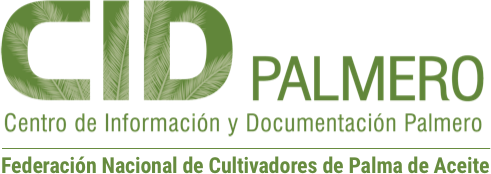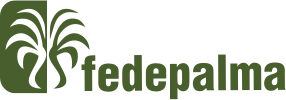The use of palm oil and kernel oil in the manufacture of soaps
Publicación:
Revista Palmas; Vol. 21 Núm. especial, (2000); 343-352
0121-2923
Revista Palmas; Vol. 21 Núm. especial, (2000); 343-352
0121-2923
Abstract
Palm oil and palm oil derivates are extensively used in the soap industry to produce both toilet and laundry soaps. Palm oil is widely available and processed in some areas of the world such as West Africa, Far East (Indonesia, Malaysia, The Philippines etc.) and Central-South America. When processing the crude palm oil to produce edible oils, a number of valuable "by-products" such as stearines, PFAD etc. are available to produce soap: this is the reason why most oil makers are soap makers as well. Let me give you some indicative figures relevant to plants using palm oil and derivates that we installed in the last ten years. In Central America, Colombia, Ecuador we have installed about 20 plants processing palm oil and derivates to produce both toilet and laundry soaps. Their average size between 1 and 3 ton/hr. 6 plants are employing the continuous saponification. In Malaysia, The Philippines and Indonesia we have installed about 15 plants producing mainly toilet soap and toilet soap chips for export. The size of the plants is very large, between 6 and 12 ton/hr. They are all continuous. In Africa we have today about 30 plants mainly producing laundry soap; their size is 2/3 ton/hr, mostly using the batch technology. Our specific experience is very wide, based on a large number of applications (more than 65 plants). Palm oil and its derivates are a natural and perfect substitute of tallow to produce soap: the characteristics of a vegetable base soap or a tallow base soap are indeed very similar. The use of palm or tallow is mainly bound to the availability of the products and their price. It is obvious to say that in Europe and North America you will find tallow base soap and in the Far East and Central America vegetable base soap. Nevertheless a strong demand of vegetable base soap developed in Europe in the last few years: marketing reasons such as the "natural" appearance of vegetable stuff boosted the demand. Special products such as translucent bases for toilet and gift soap are more and more demanded. El aceite de palma y sus derivados son ampliamente utilizados en la industria del jabón para producir jabón de tocador y de lavar. El aceite de palma es ampliamente distribuido y procesado en algunas áreas del mundo, tales como África Occidental, el lejano Oriente (Indonesia, Malasia, Filipinas, etc.) y Sur y Centro América. Cuando se procesa el aceite de palma crudo para producir aceite comestible, un considerable número de productos alternos, como estearinas, PFAD, etc. resultan para producir jabón. Esta es la razón por la cual la mayoría de fabricantes de aceite también son fabricantes de jabones. Presenta unas cifras indicadoras, importantes para las plantas que utilizan el aceite de palma y sus derivados, instaladas por Mazzoni LB en los últimos diez años. En Centroamérica, Colombia y Ecuador se han instalado cerca de veinte plantas procesadoras de aceite de palma y sus derivados para producir jabones de tocador y de lavar. Su tamaño promedio entre 1 y 3 ton/hr. Seis plantas emplean saponificación continua. En Malasia, Las Filipinas e Indonesia hemos instalado cerca de 15 plantas que producen jabón de tocador y pastillas de éste para exportación. El tamaño de las plantas es muy grande, entre 6 y 12 ton/hr. Todas son continuas. En África hay hoy en día cerca de 30 plantas produciendo principalmente jabón de lavar. Su tamaño es de 2/3 ton/hr, usando principalmente el método de lotes. Nuestra experiencia específica es bastante amplia, basada en un gran número de aplicaciones (más de 65 plantas). El aceite de palma y sus derivados son un sustituto natural y perfecto del sebo para producir jabón. Las características de un jabón de base vegetal y un jabón de base de sebo son, de hecho, muy similares. El uso de palma o sebo está limitado únicamente por la disposición del producto y su precio. Es obvio decir que en Europa y en Norte América usted encontrará jabón con base de sebo, y en el Lejano Oriente y Centroamérica jabón de base vegetal. De todas maneras una fuerte demanda de jabón de base vegetal se ha desarrollado en Europa en los últimos años. Razones de mercadeo como la apariencia "natural" de productos vegetales impulsó la demanda. Productos especiales como bases translúcidas para tocador y jabones de regalo son cada vez más demandados.
Palm oil and palm oil derivates are extensively used in the soap industry to produce both toilet and laundry soaps. Palm oil is widely available and processed in some areas of the world such as West Africa, Far East (Indonesia, Malaysia, The Philippines etc.) and Central-South America. When processing the crude palm oil to produce edible oils, a number of valuable "by-products" such as stearines, PFAD etc. are available to produce soap: this is the reason why most oil makers are soap makers as well. Let me give you some indicative figures relevant to plants using palm oil and derivates that we installed in the last ten years. In Central America, Colombia, Ecuador we have installed about 20 plants processing palm oil and derivates to produce both toilet and laundry soaps. Their average size between 1 and 3 ton/hr. 6 plants are employing the continuous saponification. In Malaysia, The Philippines and Indonesia we have installed about 15 plants producing mainly toilet soap and toilet soap chips for export. The size of the plants is very large, between 6 and 12 ton/hr. They are all continuous. In Africa we have today about 30 plants mainly producing laundry soap; their size is 2/3 ton/hr, mostly using the batch technology. Our specific experience is very wide, based on a large number of applications (more than 65 plants). Palm oil and its derivates are a natural and perfect substitute of tallow to produce soap: the characteristics of a vegetable base soap or a tallow base soap are indeed very similar. The use of palm or tallow is mainly bound to the availability of the products and their price. It is obvious to say that in Europe and North America you will find tallow base soap and in the Far East and Central America vegetable base soap. Nevertheless a strong demand of vegetable base soap developed in Europe in the last few years: marketing reasons such as the "natural" appearance of vegetable stuff boosted the demand. Special products such as translucent bases for toilet and gift soap are more and more demanded.
Palabras clave:
aceite de palma
aceite de palmiste
jabón
usos industriales de la palma
aceite de palma
aceite de palmiste
jabón
usos industriales de la palma



